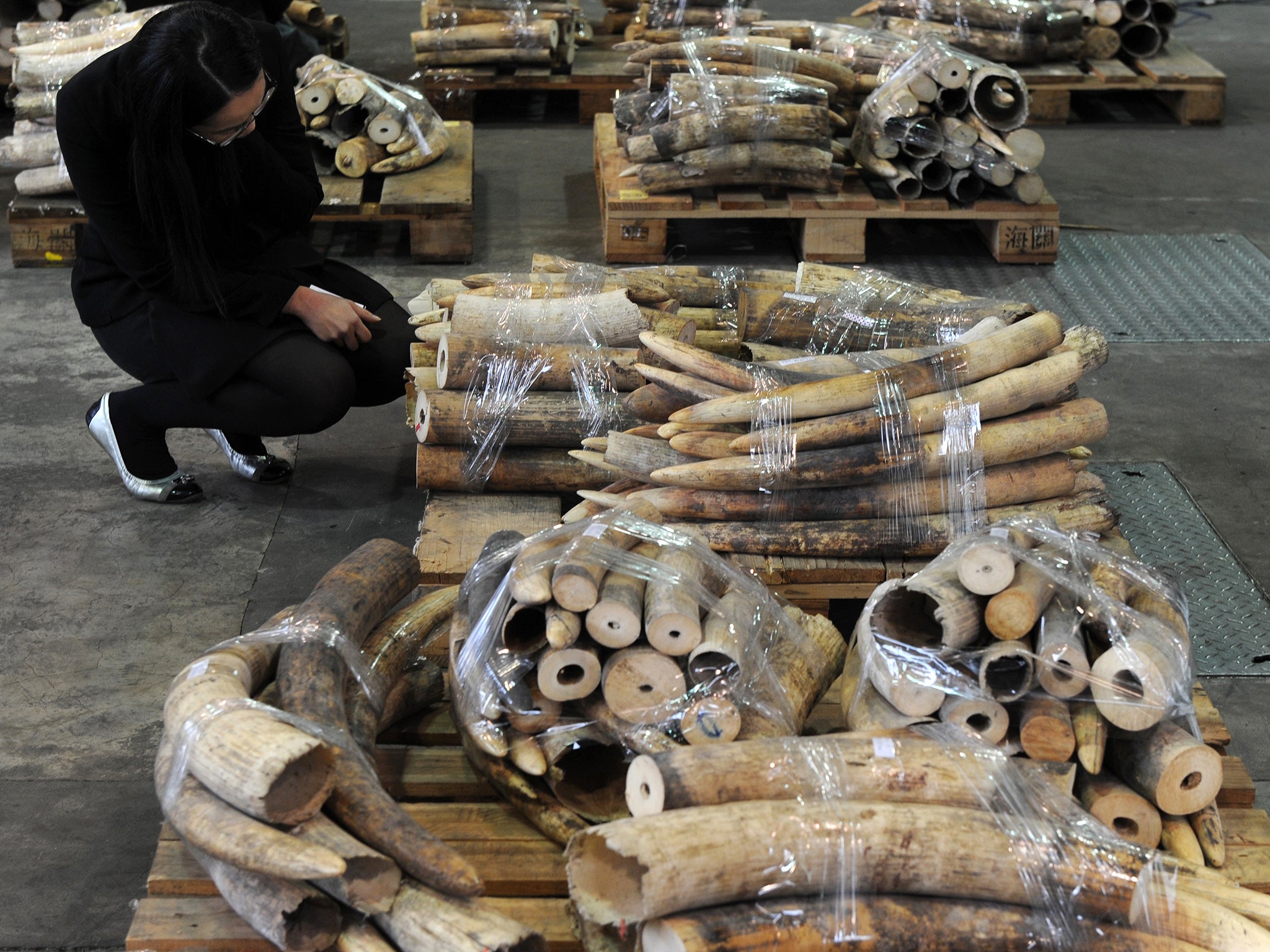China's ivory ban branded 'a flimsy measure that won't work'
Campaigners say rules don’t do enough to combat illegal trade

Campaigners have accused China of being insincere in its efforts to combat illegal ivory trade, dismissing its recent import ban as a “flimsy measure” that won’t work – and even suggesting it may have been introduced to undermine the case for a broader ban.
Under the one-year ban, announced just ahead of Prince William’s visit this week, people will no longer be able to buy carved ivory products in Namibia and Zimbabwe and take them home to China for personal use – closing the last remaining legal method of importing ivory into the country.
Announcing the ban at the end of February, China said it was designed to “observe, understand and scientifically evaluate the impact on elephant conservation”.
However, while Prince William gave a cautious welcome to the ban, campaigners have criticised the move as more talk than action. They say it will do little to tackle elephant poaching as it remains legal to trade certified ivory products within China – a system the country shows no sign of changing and which opponents claim allows criminals to mix in and launder illegal ivory using counterfeit certificates.
“At a time when elephants are being killed in their thousands, little meaningful impact can come from such a limited approach,” said Mary Rice, executive director of the Environmental Investigation Agency. “It would also be a fundamentally flawed analysis if China were to use the implementation of such a flimsy measure as an excuse to determine that ivory trade bans don’t work. China should be talking about reducing demand for ivory full stop.”
Ivory trade has been banned since 1989, with a few exceptions. These include a one-off auction in 2008, which forms the basis of China’s legal ivory market. This saw Botswana, Namibia, South Africa and Zimbabwe sell 60 tonnes of their stockpiled ivory to bidders in China. However, research suggests that trade in these legal products represents as little as a tenth of the total Chinese market. China is by far the biggest ivory importer, accounting for the lion’s share of global trade.
But some experts say the country is making good progress. “I can understand why some people are sceptical and may see China’s ban as window-dressing – but we need to give credit where credit is due,” said Dominic Dyer, policy advisor for the Born Free Foundation wildlife charity. “This is a step-by-step process. Having said that, we haven’t got that long before there are huge consequences.”
More than 100,000 African elephants have been slaughtered for their tusks in the past three years, as China’s growing middle class demands ivory products as status symbols.
John Scanlon, secretary general of Cites – the UN Convention on International Trade in Endangered Species – said: “China is on the right track and just needs to keep turning the screws.”
Join our commenting forum
Join thought-provoking conversations, follow other Independent readers and see their replies
Comments
Bookmark popover
Removed from bookmarks